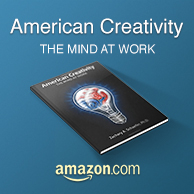I recently made a discovery that was personally disturbing, and although it arises from very simple and anecdotal observations, from what I have read it seems to hold true across entire societies regardless of age, gender, ethnicity, or socioeconomic status. This discovery was even more troubling due to the fact that I am a college professor and truly believe in self- and societal-growth through education.
Most people go through life as if they “don’t have time” to think.
This unfortunate situation has arisen for several reasons, and I will start at the most abstract level and work my way down to a more practical explanation.
The Ills of Expediency
Contemporary societies are concerned with packaging messages, ideas, and arguments in the simplest and most concise form possible. Organizations, and the people that constitute them, expect immediate results. This is true in all organizations including businesses, mass media outlets, and schools. When is the last time a business executive read an entire report presented to them by a product manager? How many college professors have stopped requiring their students to write and conduct full-length research projects? What type of messages do media outlets promote (i.e., newspapers, television stations, news agencies)? Does an “if it bleeds it leads” mentality inspire thoughtful inquiry? Why do news shows give so much emphasis to sports and entertainment issues? We could get into a conversation of the commercial dimensions of mass media, but I’ll save that for another article. The point I am making is that people truly believe they have no “time” to work through difficult ideas. We have accepted the ever-changing landscape of life and have lost the ability to sit and think.
A cultural norm of expediency now dominates the workplace and personal relationships, and this is having significant repercussions on the style and type of communication between people. Do we want the leaders of our political institutions, corporations, and educational facilities making hasty decisions that affect millions of citizens, consumers, and students? I certainly don’t. The fastest (or first) answer does not mean it’s the best.
Because of the prevalence and universal acceptance of commercial and educational convenience, expediency, and immediate gratification, people don’t take time to process information, arrange and categorize ideas, and certainly not to synthesize disparate messages to form their own opinions and arguments. What fuels our fascination with immediate gratification? One answer is the mutually influencing relationship between technological innovation and dependence.
Communication and Technology
I have finally gotten all the files on my iPad synced up with my laptop, my Android phone, and all my social networking memberships. My ideas run seamlessly from my brain to all of these devices, at least until the technology becomes outdated or needs updating. Then the process starts all over again. As I load more and more ideas onto my devices, my dependence on them continues to increase, until the point where I power on these instruments to power on my brain. We forgot that an easy way to learn is to sit, concentrate, and actively commit to (internal human) memory the ideas we see/hear.
As a college professor and conflict management practitioner, I see the many ways that students and working professionals preoccupy themselves, and thus, avoid learning. They call it “multi-tasking” and argue that they can do more than one thing at a time in an effective manner. But research paints a different picture, illustrating that as people multi-task their attention spans decrease, their cognitive processing power shrinks, and their information retention (learning) declines.
In addition, if you can’t boil your idea/message down to 140 characters, many people won’t take the time to think about what you said. People allow technology to dictate the form and function 0f their thoughts rather than using technology as a tool to enhance their messages and help audiences connect to them.
What happens when our cell phone signal fails? What if the internet goes down? Have you ever forget your Twitter or LinkedIn password? These mechanical failures and memory lapses are becoming personal crises because we are losing their ability to think on our feet. I see it all the time when an organizational intranet goes down…many workers simply do not know what to do. Communication technologies are such wonderful tools but people begin to depend on them, thereby limiting their human potential. Technological dependence, in a communicative sense, paralyzes thought development and encourages us to think and talk in bullet points rather than fully developed, logical arguments.
Predatory Parsimony
Proponents who overzealously apply the Parsimony Principle – or the idea that everything should be as simple as possible – face the risk of being too sparing with the maturity of their ideas. These patrons of parsimony not only think and talk in an expedient manner, they also listen according to the same principle. That is, they expect speakers, writers, coworkers and family members to be as parsimonious as they are. This predatory parsimony is unacceptable since many ideas take time to sink-in; this is known as an incubation period. Those of us who expect parsimonious communication will miss out on ideas and messages that are more fully developed because we won’t take the time to let them incubate and grow (which leads to deeper understanding). When a person worries about getting to the point, they are narrowing their opportunities for discovery, growth, and enlightenment from unexpected sources. People who exhibit Predatory Parsimony Personality Disorder slowly strangle their curiosity.
Cultivating Curiosity
I recently attended a wonderful speech given by a Holocaust Survivor whose entire message was about forgiving the Nazis and achieving self-enlightenment. It was an inspiring, uplifting and powerful message, especially since it was juxtaposed against her experience of being a human guinea pig during Nazi Medical experiments. When discussing this event with other professors, conflict practitioners, and legal professionals, I kept hearing the same question accompanied with odd facial expressions, “Why did you go to that?” This question really bugged me. I kept thinking, “Why wouldn’t you want to go? Don’t you have an active mind? Aren’t you a human? Wouldn’t you want to hear this powerful story? You do realize that these survivors won’t be around for much longer.” I bit my tongue, however, and delivered a more socially acceptable but also accurate response, “I enjoy learning and hearing new perspectives.” This drew a smile and the phrase, “Oh. Interesting.”
The moment we allow external categories, judgments, or labels to guide our life choices and actions, we are chipping away at our curiosity. There is no quicker way to betray your imagination than spending too much time worrying about what others think of you. This extreme form of self-consciousness (i.e., identity paralysis) is never a good thing. Instead, we need to challenge ourselves every day to learn new things, meet new people, and learn in different ways (e.g., personal experience, reading, writing, talking). Keeping our imagination active will help us live longer and more fulfilling lives. If we always look for the most expedient route to knowledge, money, or relationships, we will continually be disappointed.
Final Thoughts
Although I know most people wouldn’t take the time to read this entire post, for those of you that did, I hope you got something out of it. So please pat yourselves on the back!
I struggle to recognize and push back on my technological dependence, to avoid choosing the convenient route to understanding, and to keep my mind active in productive ways. Although I am not a neo-luddite, I do still enjoy having a face-to-face conversation, I like reading a real book, and I don’t mind taking a few minutes out of each day to think rather than be swept out to the societal sea of expediency. For those of us who value thinking, here are three pieces of brilliant but simple advice. In years to come, I hope my life’s legacy cannot be boiled down to 140 characters:
- When making significant decisions, ask: What do I get and what do I give up?
- You get out of life what you put into it.
- Be able to distinguish your needs versus your wants.
- Do some good. Have some fun. Make some money.



